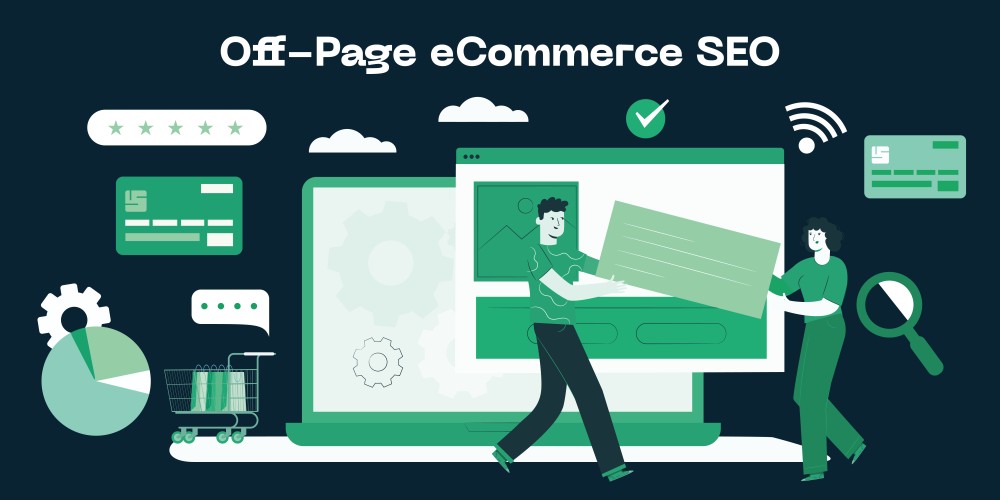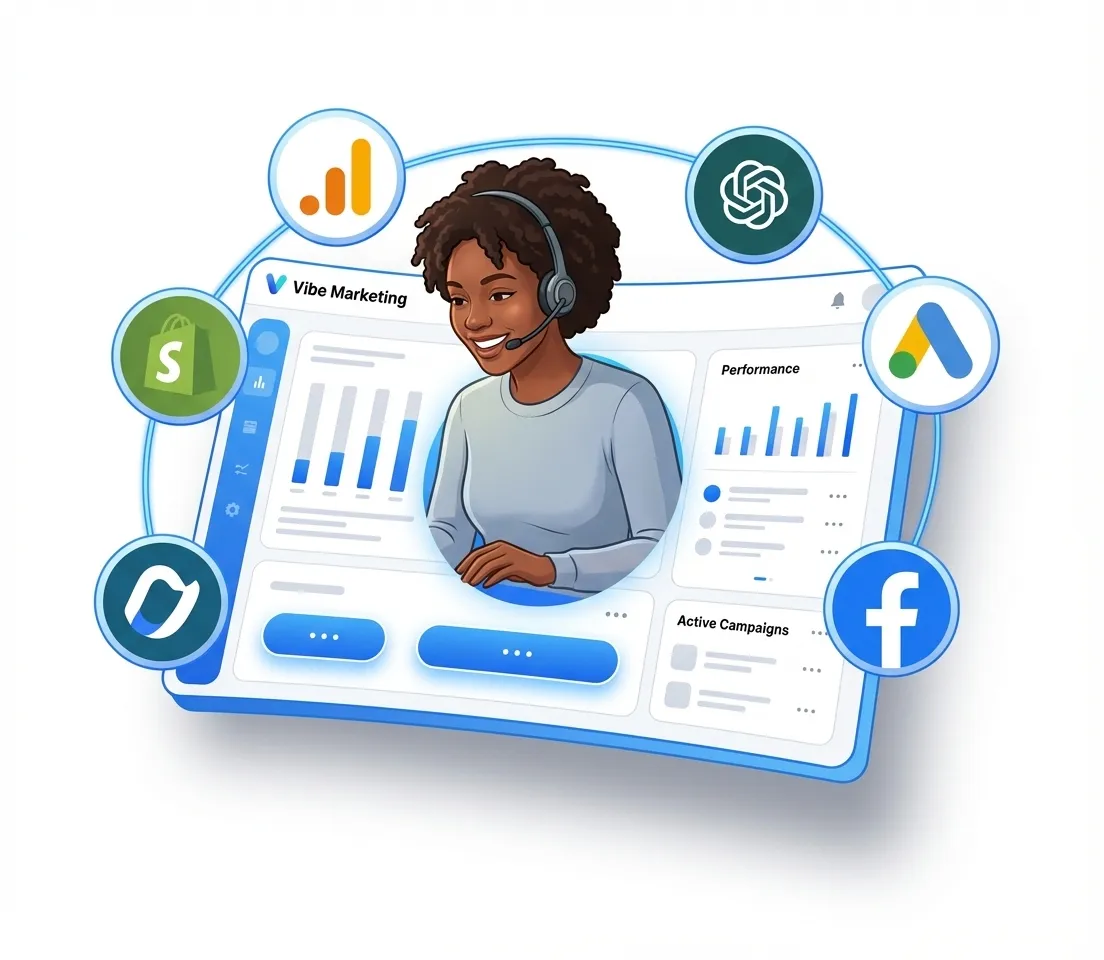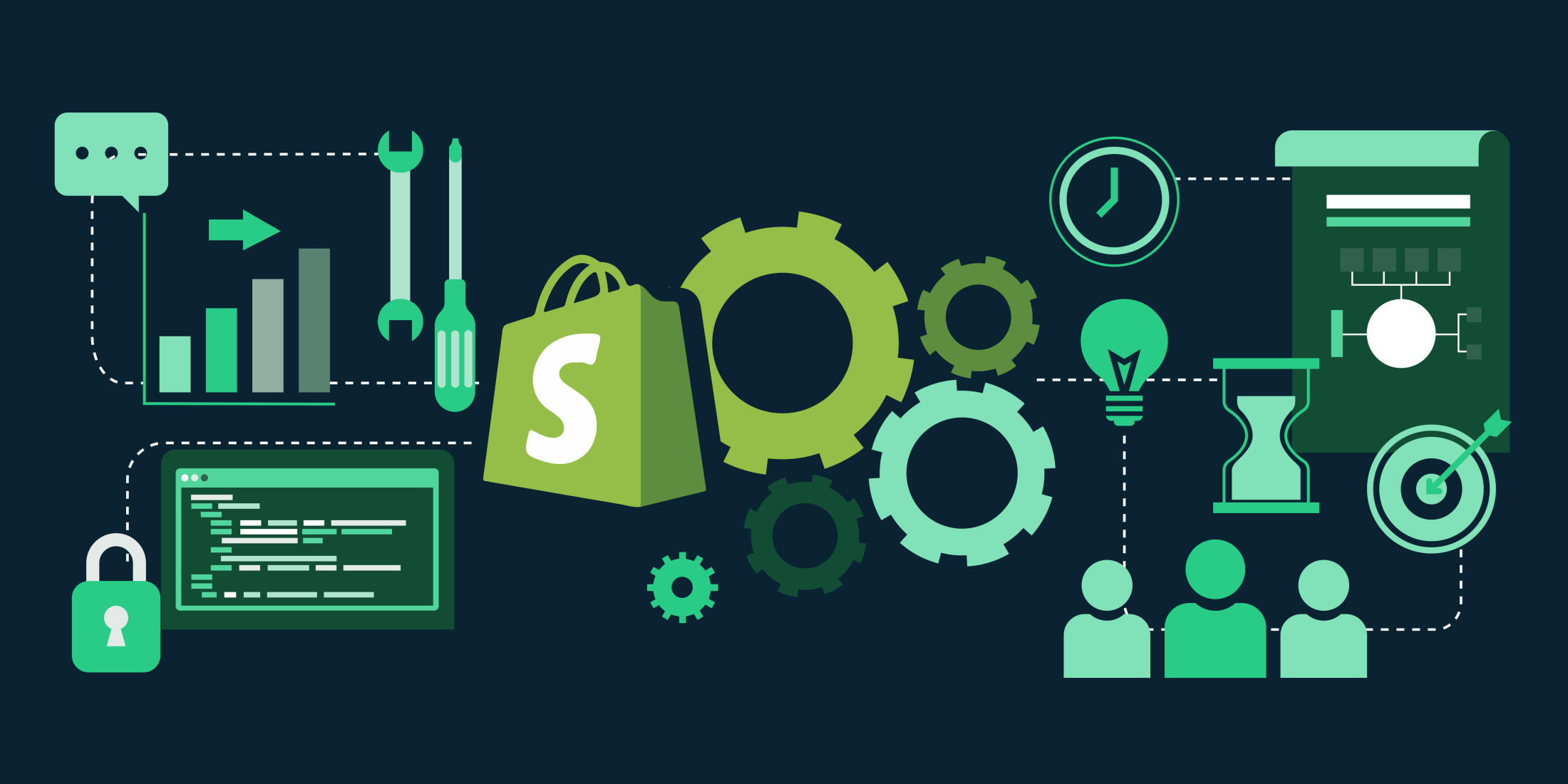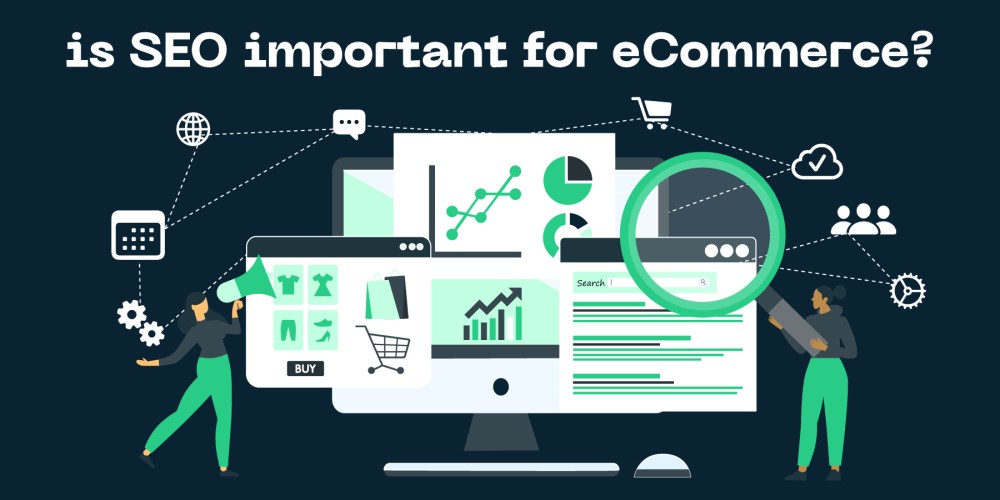Off-Page SEO for Ecommerce Websites: Top SEO Strategies

Key Takeaways
- Backlinks are still king. High-quality links from niche-relevant, authoritative sites are the most powerful off-page SEO signal for ecommerce in 2025.
- Off-page SEO goes beyond links. Social media engagement, online reviews, and forum participation play a major role in brand authority and organic traffic.
- Reputation is everything. Positive mentions and community presence build trust with both customers and search engines.
- Think like a brand, not a blogger. Sustainable SEO means building long-term relationships, not chasing short-term gains.
Off-page SEO is everything that happens outside your website but still affects how well it ranks on search engines. Think of it as your brand’s reputation across the web—backlinks, mentions, reviews, and even social buzz. You might not control the platform, but you can influence the narrative.
In 2025, off-page SEO still holds major weight. Search engines look beyond your product pages—they want to see how the rest of the internet talks about you. Are reputable websites linking to your store? Are customers leaving reviews? Is your brand being mentioned in niche forums or social media?
These external signals build trust, authority, and visibility—three non-negotiables if you want to stand out in an increasingly competitive ecommerce landscape.
This guide is built for ecommerce merchants who are ready to scale organic growth by stepping beyond the borders of their own website. Let’s break down exactly how to do it.
The #1 Strategy That Still Reigns: Backlink Building
Backlinks are like digital referrals. When a high-authority website links to your store, it’s telling search engines, “This content is legit.” And Google listens.
Backlinks serve as the backbone of off-page SEO. They signal to search engines the quality and relevance of your content, making them extremely important in off-page SEO. To secure valuable backlinks, creating educational content through guest blogging and employing targeted outreach strategies, such as leveraging podcasts, is key.
In 2025, backlinks remain the most powerful off-page SEO signal—especially for ecommerce brands. They’re not just about SEO clout. They drive qualified traffic, increase brand exposure, and help you dominate competitors in search rankings.
But not all backlinks are created equal.
Quality beats quantity. A single link from a well-known, niche-relevant site carries more weight than dozens of random blog mentions. It’s about relevance, authority, and trustworthiness.
If your ecommerce store wants lasting organic growth, link-building isn’t optional—it’s foundational.
5 Powerful Backlink Strategies for Ecommerce Brands
1. Guest Blogging on Reputable Sites
Contribute expert content to blogs or publications your customers already trust. In return, you earn high-quality backlinks and position your brand as a thought leader.
2. Creating Shareable Content Assets
Develop guides, comparison charts, data-driven reports, or infographics that others want to reference. Great content earns backlinks naturally.
3. Digital PR & Influencer Outreach
Pitch stories or product features to journalists, bloggers, and influencers in your space. When they mention your brand, you often earn links and social credibility.
4. Broken Link Replacement Outreach
Find broken outbound links on industry blogs and suggest your similar (and working) resource as a replacement. It’s helpful, and it works.
5. Co-Marketing with Complementary Brands
Partner on a campaign or resource with a non-competing brand in your niche. You’ll tap into each other’s audiences—and earn backlinks from joint promotions.
Other Off-Page Essentials for 2025
Off-page SEO isn’t just about climbing the rankings—it’s about being seen, trusted, and talked about in all the right places. In 2025, ecommerce success depends on more than backlinks. Visibility, brand authority, and reputation are just as crucial.
While off-page SEO works wonders on a global scale, its impact on a local level should not be overlooked. Local SEO optimizes a business’s online presence for increased traffic, visibility, and brand awareness within its local area, providing the fuel for long-term business growth. A good example of this: GM Direct Hire uses Google My Business to generate clicks from their London location. By employing local SEO strategies, you can turbocharge web traffic and help your ecommerce site outshine competitors in search engine visibility.
Search engines are looking at the bigger picture. Are people engaging with your brand? Are customers talking about you? Are you present in the spaces your audience trusts?
Here are three key off-page tactics that are still delivering results—and often overlooked:
Social Media Engagement
While social signals aren’t direct ranking factors, they amplify your brand presence in a big way. Think shareable posts, product drops, user-generated content (UGC), and viral conversations. More visibility = more traffic = more backlink potential.
Online Reviews & Reputation Signals
Your reviews on platforms like Google, Yelp, and Trustpilot do double duty: they build customer trust and send credibility signals to search engines. A steady stream of positive reviews boosts local SEO and increases conversions.
Forum, Reddit, and Quora Participation
Joining niche communities and answering real questions builds your reputation as an expert. It drives targeted traffic and can even earn you organic backlinks when others cite your answers or insights.
Summary Table
Here’s your quick-hit recap of the top off-page SEO strategies that move the needle for ecommerce in 2025:
Is Off-Page SEO Still Worth It in 2025?
Absolutely. Off-page SEO is not just relevant—it’s mission-critical.
Google’s algorithm may evolve, but one thing stays constant: authority matters. Backlinks, brand mentions, and off-site signals are still how search engines separate trusted ecommerce brands from the noise.
In a market where competition is fierce and product pages are everywhere, off-page SEO is what helps your store stand out. It’s how you earn trust before a visitor ever lands on your site—and how you build a reputation that algorithms can’t ignore.
Frequently Asked Questions (FAQs)
1. What is off-page SEO for ecommerce?
Off-page SEO refers to all the activities done outside your website—like backlinks, reviews, and social mentions—that influence your site’s rankings and reputation.
2. Are backlinks still important in 2025?
Yes. Backlinks remain the strongest off-page signal for search engines. They tell Google that your store is trusted, authoritative, and worth ranking.
3. How can I get high-quality backlinks for my store?
Use strategies like guest blogging, influencer outreach, creating shareable content, fixing broken links on other sites, and co-marketing with relevant brands.
4. Do social media shares improve SEO?
Not directly, but they increase your visibility, drive traffic, and lead to more opportunities for backlinks and brand mentions—which do boost SEO.
5. Are online reviews part of SEO?
Yes. Reviews on platforms like Google, Yelp, and Trustpilot affect local SEO and build trust with both search engines and potential buyers.
6. What’s the difference between on-page and off-page SEO?
On-page SEO focuses on what’s on your site (keywords, content, structure), while off-page SEO is about external signals (backlinks, reputation, engagement).
7. Can off-page SEO help new ecommerce stores?
Absolutely. A strong off-page strategy can level the playing field by building credibility fast—even if your site is new or has low domain authority.
8. How long does it take to see results from off-page SEO?
It varies, but consistent off-page efforts (especially link building) typically show noticeable results in 3–6 months, depending on competition and execution.
Summary: Build Authority Like a Brand, Not a Blog
Yes, backlinks matter. But if that’s all you chase, you’re missing the point.
Off-page SEO in 2025 isn’t just about stacking links—it’s about building a brand people recognize, trust, and talk about. The kind of brand that naturally attracts mentions, reviews, and loyal customers without gaming the system.
That means investing in real relationships—with publishers, partners, customers, and communities. It means showing up consistently across channels, delivering value, and letting others amplify your voice.
When you combine smart off-page strategy with a healthy, optimized site, you don’t just grow rankings—you build a sustainable growth engine.



